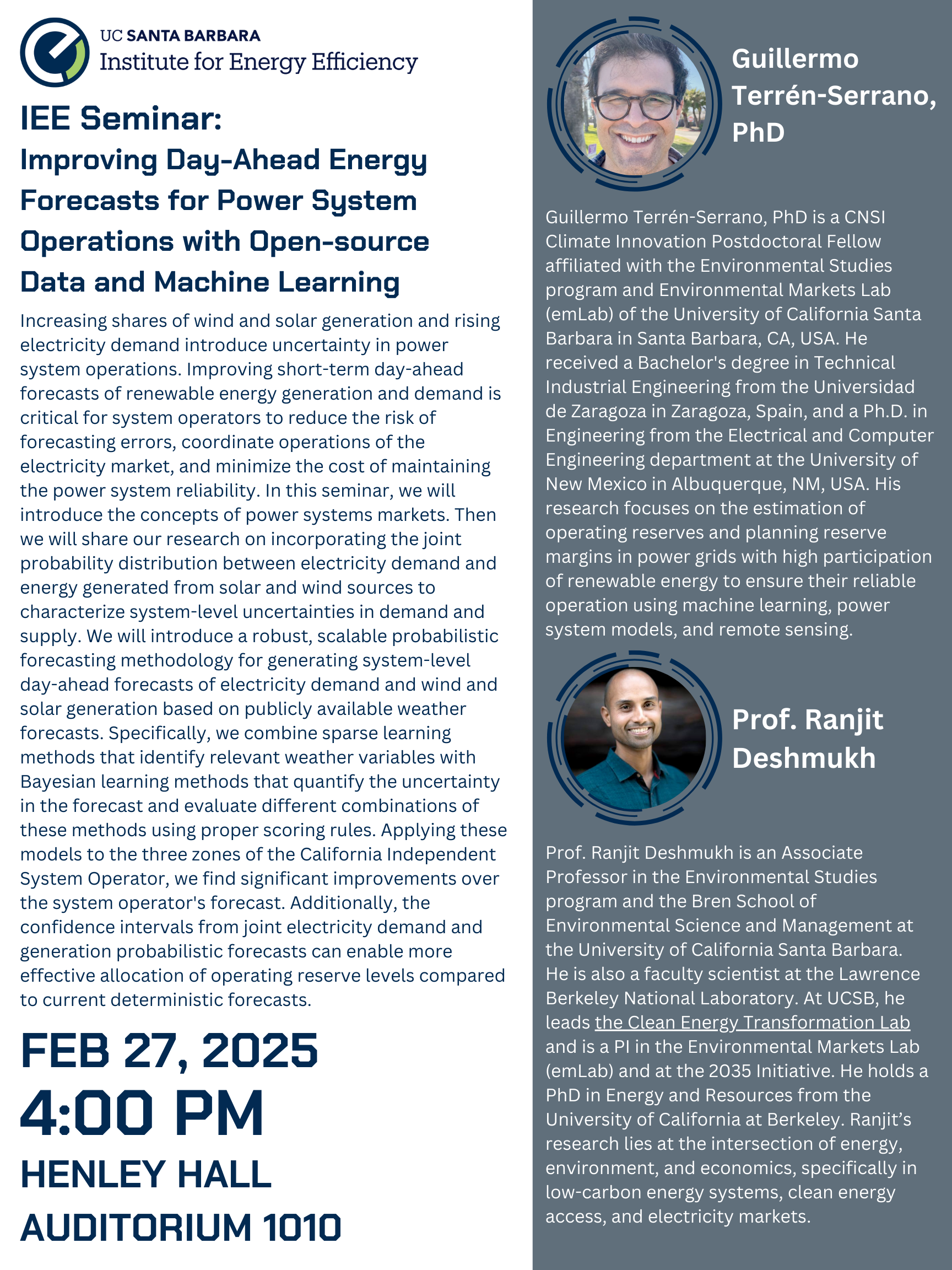
Abstract
Increasing shares of wind and solar generation and rising electricity demand introduce uncertainty in power system operations. Improving short-term day-ahead forecasts of renewable energy generation and demand is critical for system operators to reduce the risk of forecasting errors, coordinate operations of the electricity market, and minimize the cost of maintaining the power system reliability. In this seminar, we will introduce the concepts of power systems markets. Then we will share our research on incorporating the joint probability distribution between electricity demand and energy generated from solar and wind sources to characterize system-level uncertainties in demand and supply. We will introduce a robust, scalable probabilistic forecasting methodology for generating system-level day-ahead forecasts of electricity demand and wind and solar generation based on publicly available weather forecasts. Specifically, we combine sparse learning methods that identify relevant weather variables with Bayesian learning methods that quantify the uncertainty in the forecast and evaluate different combinations of these methods using proper scoring rules. Applying these models to the three zones of the California Independent System Operator, we find significant improvements over the system operator's forecast. Additionally, the confidence intervals from joint electricity demand and generation probabilistic forecasts can enable more effective allocation of operating reserve levels compared to current deterministic forecasts.
Biography
Guillermo Terrén-Serrano, PhD is a CNSI Climate Innovation Postdoctoral Fellow affiliated with the Environmental Studies program and Environmental Markets Lab (emLab) of the University of California Santa Barbara in Santa Barbara, CA, USA. He received a Bachelor's degree in Technical Industrial Engineering from the Universidad de Zaragoza in Zaragoza, Spain, and a Ph.D. in Engineering from the Electrical and Computer Engineering department at the University of New Mexico in Albuquerque, NM, USA. His research focuses on the estimation of operating reserves and planning reserve margins in power grids with high participation of renewable energy to ensure their reliable operation using machine learning, power system models, and remote sensing.
Prof. Ranjit Deshmukh is an Associate Professor in the Environmental Studies program and the Bren School of Environmental Science and Management at the University of California Santa Barbara. He is also a faculty scientist at the Lawrence Berkeley National Laboratory. At UCSB, he leads the Clean Energy Transformation Lab and is a PI in the Environmental Markets Lab (emLab) and at the 2035 Initiative. He holds a PhD in Energy and Resources from the University of California at Berkeley. Ranjit’s research lies at the intersection of energy, environment, and economics, specifically in low-carbon energy systems, clean energy access, and electricity markets.